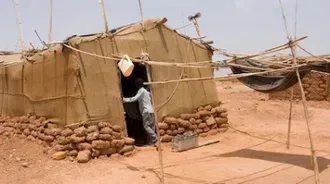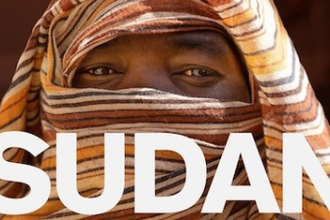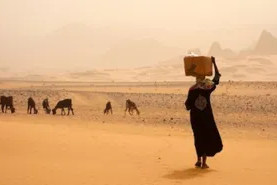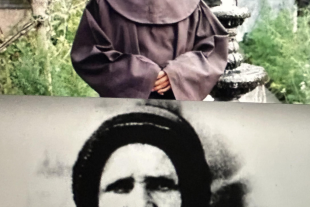Sudan: the West could have stopped the bloodshed

Sudan refugee camp. Image: CAFOD
Four years ago, Sudan's military coup crushed a new civilian government before democracy could take root. Sadly, the international community believed the generals when they promised to honour the will of the people's revolution of 2018-19. The diplomats' lack of sustained pressure on Sudan opened the door to the current bloodshed claiming an estimated 150,000 lives.
According to Lord David Alton, who has campaigned for human rights in Sudan for years, "Anyone paying attention to Sudan knows that the military leaders who did General Bashir's dirty work for decades would not be our partners in the search for peace. The men responsible for the Darfur genocide were never going to be the midwives to a democratic future. Yet, our diplomats chose to take the generals' word that they would respect the demands of Sudan's popular revolution for a truly secular, pluralist civil administration. Because of its indifference to Sudan, the international community inadvertently signalled to the men with guns that the world would stand aside as they crushed democracy. It's no surprise these same generals are now laying waste to the country."
Background to a Catastrophe
Since independence, Sudan has mostly been ruled by dictatorships, often by fundamentalist Islamists. Corruption and the persecution of ethnic and religious minorities such as Christians were the cornerstone of Field Marshall Omar Bashir's long-running regime. People's anger boiled over in 2018-19 when a popular revolt brought down Bashir.
The Islamist regime was replaced by a Sovereignty Council led by technocrat Abdalla Hamdok. It established a "Commission for Dismantling the 30 June 1989 Regime, Removal of Empowerment and Corruption, and Recovery of Public Funds". Michelle Gavin of the US Council on Foreign Relations believes that when the commission began to investigate the massive extortion racket operated by Sudan's generals and Islamist politicians, the generals Hemedti and Burhan feared they would be held to account for the Darfur genocide, as well as losing control of the budget. Hence, they launched a coup against Hamdok's transitional government on October 25th 2021.
Maddy Crowther of Waging Peace says the international community's response was meek, even while killings and atrocities continued unabated. "Sudan's current war is a continuation of the generals' complete and utter disregard for Sudan's people, their wishes and aspirations for good governance."
The generals Hemedti and Burhan turned on each other in April 2023, with an estimated 150,000 killed and half the population displaced as they bomb civilians indiscriminately. The war is now concentrated in Darfur and the Kordofans where Sudan's Black African minority groups are being selected for elimination.
Both the Sudanese Armed Forces and the Rapid Support Forces are accused by the UN and impartial international rights monitors such as the Yale University Humanitarian Research Lab of attacking civilian infrastructure with impunity. Both sides are also allegedly responsible for sexual and gender-based violence on a massive scale, and the deliberate targeting of civilians.
El Fasher in North Darfur has endured more than 550 days of siege during which no food has been allowed to enter. The Rapid Support Forces have built a 57 km earthen wall around the city, preventing people from escaping or delivering much needed aid. Within El Fasher, 250,000 people are starving. Across Sudan, the UN says 30 million people are in need of urgent humanitarian aid.
The Sudanese Diaspora expresses bewilderment that there is so little concern about the siege of El Fasher, while international attention remains focused on Gaza and Ukraine. Abdallah Abugarda of the UK Darfur Diaspora Association says, "The Sudanese people do not trust any military government or general in power. The international community should support the rise of a strong, democratically elected civilian government that can end genocide and rebuild the social fabric, and protect innocent lives being stolen in Sudan."
Four years ago, the international community missed a chance to dismantle to the old power system in Sudan. According to Michelle Gavin, "Supporting democratic forces fighting authoritarianism requires intensive and careful consultation-and that entails a sustained and engaged diplomatic presence….it is painfully obvious that in Sudan there is no path to stability that doesn't confront a fundamental governance model that serves only a privileged and violent few."
Lord Alton says, "In 2019, when Sudanese 'people power' overthrew the Bashir regime, the international community should have given robust and sustained support to the civilian transitional government. Instead, the diplomats stepped back, and Sudan's corrupt and brutal generals took advantage. It would have been much less expensive to help establish a democratic Sudan than to try to stop the conflict now and rebuild a devastated nation."
This article first appeared on the Pan African Visions website


















